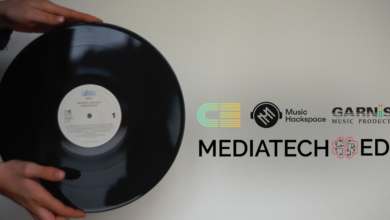
“What we’re seeing is increasingly white collar jobs are very skill based and they require this hands on sort of development that comes from getting your hands dirty with it… College graduates are disenchanted when they realize that college isn’t the ticket to the middle class.” – Brad Voeller
I remember my grade school and high school textbooks. They were never new and often used for a few years before finally reaching me and being passed on through. It was rare in high school to see a textbook printed and copyrighted that year. In college, this changed, and nearly every textbook was reprinted or “updated” within the last year or two… but when I bought the older edition of an accounting textbook the only two differences were the introduction and the ordering, not the content, of chapters.
When studying history or Generally Accepted Accounting Principles the knowledge required in 2015 and 2017 is mostly the same. But in the internet and technology sphere this is completely different. When a digital marketing textbook is 3 years old it’s missed nearly 20% of the entire fields history!!! (Fun fact: most UK retailers didn’t own a domain name in 2000). The current educational model can’t keep up with this.
And the current educational model is also expensive in time and cost. 4 years of limited to no work and $50,000 or more in direct cost. The current model is slow and costly – it’s not enough to keep up with newly required technical skills – but what can supplement or replace it?
Maybe higher education can learn something from the trades.
Apprenticeships as a Service
Apprenticeships have been used in skilled trades for centuries. Today it’s being explored as alternative for an increasingly technical work world. The fundamental characteristics of an apprenticeship are learning through relevant work with experienced, working professionals. The concept is being explored right here in Texas.
I recently sat down with Brad Voeller of San Antonio, a serial successful educational entrepreneur, to speak about Digital Creative Institute. Digital Creative institute (DCI) is leading the charge to bring apprenticeships to digital marketing. It’s a unique model that matches companies with marketing needs, apprentices with capability, and journeymen to train them.
Apprentices are enrolled in a 1 year program and connected with a local employer. They pay tuition and attend a series of in-depth classes while applying what they’ve learned to the unique situations they face in their full time paid job. These positions are highly sought after. DCI’s program has a sixth of the acceptance rate of Harvard.
Companies get hard working, vetted digital marketers who learn continuously through their first year and implement those learnings immediately. For many companies, developing a training program for first year hires is a huge challenge that DCI solves for. The program builds strong connections too. After the program a vast majority of all apprentices stay with the company past the apprenticeship and grow into a leader in marketing.
This success on the student and company side has led to rapid growth. DCI is on its fifth, year long, San Antonio cohort and the second Austin group just started too. Dallas is next on the list of growth cities.
Why Digital Marketing? Why Texas?
“I noticed at Lumerit [Brad’s previous company] that our in-house marketing team was entirely self taught. We didn’t hire them out of some type of program where they had these skills but we provided support for them… And these people were being validated. After Lumerit and their success there they were able to get jobs at large, successful companies who were previously undifferentiated.” – Brad Voeller
 Digital marketing fits well with an apprenticeship model because it isn’t taught as a full skillset at most 4 year colleges, it requires deep knowledge of certain tools and metrics, and the skills and best practices are still developing quickly. It’s also a place where there are clear metrics for success and skills translate from one area to another fairly well. Many digital marketers are self taught and marketing is a skillset that companies of all sizes can benefit from. This makes it a great fit for the apprenticeship program.
Digital marketing fits well with an apprenticeship model because it isn’t taught as a full skillset at most 4 year colleges, it requires deep knowledge of certain tools and metrics, and the skills and best practices are still developing quickly. It’s also a place where there are clear metrics for success and skills translate from one area to another fairly well. Many digital marketers are self taught and marketing is a skillset that companies of all sizes can benefit from. This makes it a great fit for the apprenticeship program.
Educational disruption in programs such as Data Science, Business Intelligence and Coding is also happening rapidly across Texas. Even sales is being disrupted by its immersion in technology and the support that technology provides. This disruption is happening in all forms through bootcamps, apprenticeships, in online and for-profit educational courses, and hybrid programs with existing universities (including executive MBAs).
Texas, because of its strong entrepreneurship bent and educational system, is uniquely suited towards disruption. Brad moved to Texas because of the interest communities here have to revolutionize education.
“When I wrote my first book, Accelerated Distance Learning, I saw that the response was in Texas, it was enthusiastic, and I came down here and met a lot of people here that were passionate about education innovation. And I said that’s what I want to be a part of and I’ve been here ever since.” – Brad Voeller
MediaTech Ventures has seen this growth too and it is one of our industry growth pillars. Austin has the highest density of coding camps in the country. Houston, Dallas and San Antonio all have tech hubs with technology education companies engaged directly. It’s not just in the higher education space where new educational options are taking off – Texas is where Jeff Sandefer’s Acton Academy got its start and Texas has 8 of the 25 global Acton schools.
Increasingly nations around the world are looking to Texas for leadership on new forms of education. Brad met an assistant secretary of education in China at a Harvard education summit who told him that Texas is where he gathers ideas from because China’s education system doesn’t allow for freedom to innovate in education.
Texas also has representative markets that provide a launching point to the rest of the US. Brad chose San Antonio to launch DCI in because its a good representation of 50 other cities in the US and has a thriving tech and marketing scene. Models that work in San Antonio will probably work in Dallas, Houston and dozens of other markets across the country.
Trust in the Emerging Educational Economy
One of the most important concerns brought up by critics of new educational models is that they are unregulated and may be selling false promises. Education is an investment with a difficult to define ROI. Particularly before the internet the only place to learn about the value of an educational institution without a historic track record would be from case studies or PR from that organization.
Today, for-profit educational models, apprenticeships and non-profit models are beginning to be surrounded by a new ecosystem that allows for aligned incentives. Two major examples of this available in Texas are SkillsFund and Course Report. Skills Fund offers loans to students attending bootcamps. These aren’t traditional student loan. They can disappear with bankruptcy and aren’t supported by the federal government. Notably, if a student can’t repay their loans because they took a bad course Skills Fund is on the hook. Skills Fund has built a model to validate schools based on their outcomes and aligned incentives so that “Simply put, we don’t finance students to attend crappy programs.”
 Course Report, Switch Up and traditional review sites are also expanding to shed light on programs. The good thrive on the exposure. The bad fade away and are replaced.
Course Report, Switch Up and traditional review sites are also expanding to shed light on programs. The good thrive on the exposure. The bad fade away and are replaced.
Apprenticeships, certifications and partnerships with universities to consolidate liberal arts learning with on-the-job training are other potential pathways for educational shift. The UK and Germany are far ahead of the US on apprenticeship programs. Adding the credentialing function of the university into these programs will go along way towards competency-based learning assessments.
“The challenge is if you don’t connect the learning to the work and your in some separate environment where you have to pay for all the overhead that goes along with a. University ecosystem it becomes extremely expensive. But credentialing is not that difficult with a self directed learner documenting their learnings through projects.” – BV
Final Words
Brad has worked in education for his entire career. He was homeschooled in Minnesota where there wasn’t much of a homeschooling movement. And now he has worked in education across the States and the world. He’s built Lumerit, the 10k Degree and Digital Creative Institute and authored a book, Accelerated Distance Learning. It’s safe to say he’s been passionately pursuing educational alternatives for a long time.
His recommendations for students, entrepreneurs and freelancers is to find a why and work hard towards that. His book recommendation for learning about marketing is “Word of Mouth Marketing”.
His recommendation to business owners? Marketing is necessary. At Lumerit his first major purchase was Hubspot Marketing Automation. Investing in the right technology can save heavily on personnel costs and give great results.
He’s following his passion to change education in Texas and using media and technology to do it. Get involved with him and DCI at digitalcreativeinstitute.com, by reading the Apprenticeship Manifesto and on twitter at @dcitalent.
“Im excited about how the model we’ve developed here can be a model for other countries and how they grow. Increasingly other nations are looking to Texas as a model for growth. What we can do here can inspire” – BV
Digital Creative Institute is part of the thriving San Antonio tech scene. They work out of Geekdom and closely with USAA, Rackspace, and Apogee Results along with other thriving San Antonio and Texas companies of all sizes.






